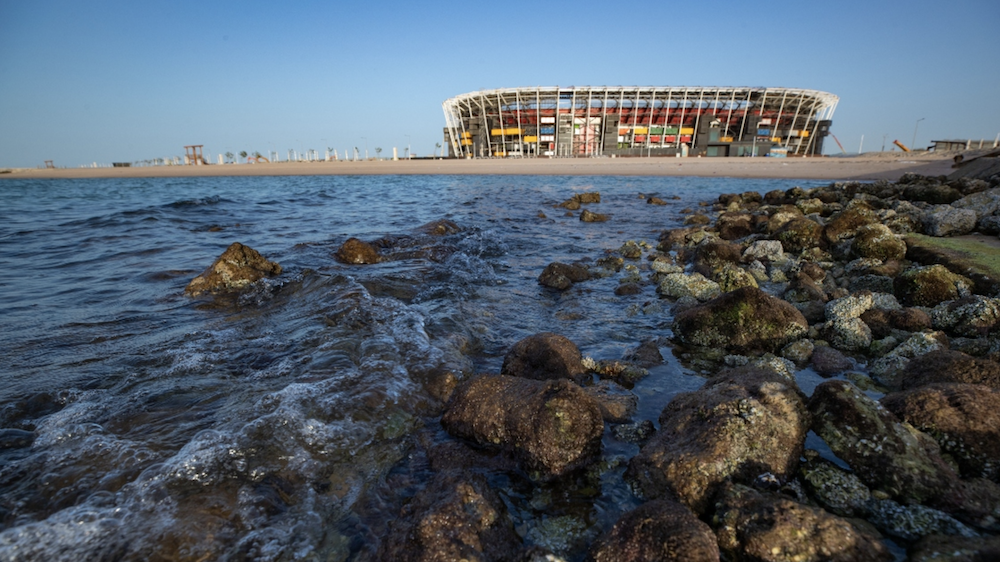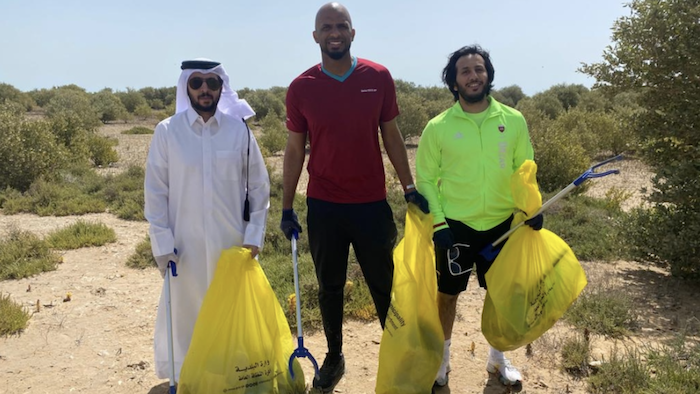
Qatar 2022 to Host One Tide Week Targeting Plastic Pollution
May 27, 2022
The organizers of FIFA World Cup Qatar 2022 are launching a campaign to encourage people and businesses to prevent plastic pollution in the world's oceans. Starting May 29, One Tide Week will take aim at waste caused by single-use plastics and instead promote reusable items, including cups, containers and cultlery. The campaign is a collaboration between Qatar's Supreme Committee for Delivery and Legacy (SC) and Seven Clean Seas, which is working with SC to raise awareness about plastic pollution, develop plastic waste reduction plans and offset plastics used in the tournament.
According to One Tide, 11 million metric tonnes of plastic enter our oceans every year, and in 2019 more than 130 million tonnes of single-use plastic were thrown away. “Every minute, the equivalent of one garbage truck of plastic is dumped into the ocean and if this continues, by 2050, we will have more plastic in our oceans than fish,” said Bodour Al Meer, the SC’s Sustainability Director.
“This plastic pollution endangers aquatic life, threatens human health and results in a myriad of hidden costs for the economy. Such a global threat requires a global response by all of us, organizations as well as individuals. We need to come together to fix this problem.”

As part of the campaign, One Tide will provide regular social media updates about plastic reduction projects whilst also educating on the damage plastic waste has on the environment, oceans and marine life. There will also be series of workshops and events for Qatari organizations and industries to discuss policy recommendations to tackle plastic pollution. One Tide is taking a particular focus on the hospitality industry, conducting plastic reduction workshops to help businesses develop strategies to tackle the issue.
This project forms part of SC’s efforts to ensure Qatar’s hosting of the FIFA World Cup leaves a lasting environmental legacy for the country. A plastic waste study by SC and Seven Clean Seas highlighted potential areas of intervention and solutions to reduce plastic consumption in stadiums. The study was conducted by collecting and sorting around 100 bags of waste generated during one match at Al Bayt Stadium as part of the FIFA Arab Cup 2021. Findings showed that despite having compostable and recycling bins available in the stadium, only 39.8% of recyclable and compostable waste was accurately disposed of, and 21% of all waste collected was plastics.
The sports community has become more aware of waste and in recent years has made significant changes to help reduce harmful waste and be more sustainable in stadiums and at tournaments around the world. Visit One Tide's website to learn and ways you can phase out plastic use in your everyday life.